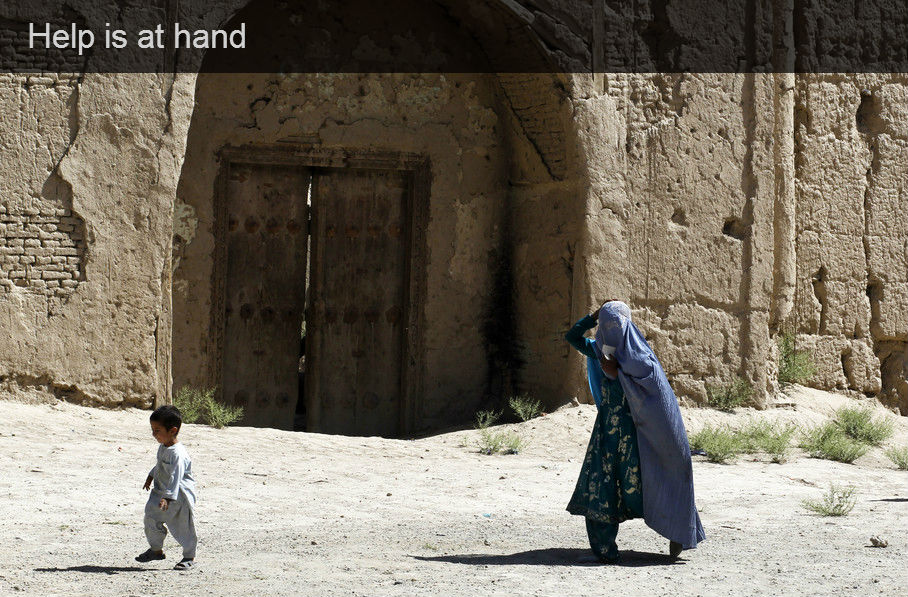Access to education, the right to make choices about your own body – these are things many of us take for granted. But the reality for many women and young girls in developing countries is very different.
Denied rights to some very basic choices – such as how many children to have and when, whether to stay in school, and how to participate in their country’s economy.
For some, this is about culture, custom, economics or just denial of basic human rights. For others it is as simple, yet life changing, as not having access to modern contraceptive methods.
The She Decides Conference in Belgium today sees ministers, young leaders, civil society groups and policymakers – a real mixture of organizations gathered together with one key objective – trying to change the way action is taken on women and girls human rights. This Conference is a seminal moment – a vital opportunity for Governments and NGOs to work collaboratively to address the challenges we face.
"If we want the world to advance, we must ensure women's rights to decide. I want my daughter's to decide." Chad Min. Of Health #SheDecides pic.twitter.com/nN3zJPav7D
— IPPF Global (@ippf) March 2, 2017
The She Decides initiative is not about abortion. It’s a fundraising initiative for human rights. Access to sexual and reproductive health and rights, and in particular family planning, is the foundation for gender equality, women's empowerment, and economic development for both women and men, wherever and whoever they are.
This moment will kick-start the process of securing maximum political and financial support to ensure full access worldwide to sexual and reproductive health and rights, including family planning, so that the most vulnerable women and girls can exercise the right to decide about their own bodies and destiny.
The need has never been greater. Beatrice Akoth had never wanted or planned to have nine children, but she had no choice. Although the idea is incomprehensible for many of us, Beatrice, like millions of other women and girls, had no access to contraception when she desperately needed it.
“When I was a young girl, I never thought I would have nine children. After each child, I got pregnant again, nine months later,” she said.
This left her struggling to provide for her family, who all share a two-room mud shack on swampy ground on the outskirts of Kisumu, Kenya.
No one had ever talked to her in any depth about family planning, and by the time the ninth child was born, 41-year-old Beatrice was unable to cope.
“The children were my burden. I did not know who to turn to. But one day, out of the blue, I overheard a group of women animatedly chatting about family planning and where to access it,” she said.
There’s no doubt that if she had been able to get care sooner, her life would have been dramatically different. And Beatrice is far from alone.
It doesn’t cost much to provide contraception or to safeguard rights, but we need political will and investment.
This is why She Decides in Brussels comes in. We are at a crucial moment. As governments and those on the ground delivering services to protect women’s rights and tackle inequality. We know that sexual and reproductive health and rights are key to individual wellbeing.
"When it comes to women's Rights, there's no North or South, it's a GLOBAL movement until #SheDecides" - T. Melesse @ippf pic.twitter.com/h7QMNIy3Lq
— IPPF Global (@ippf) March 2, 2017
And in such company, we could convince ourselves that we have won this fight that our unanswerable case has triumphed.
Sexual and reproductive health and rights services cover every aspects of people’s lives. We want to make sure there is continued support to avoid unintended health consequences, especially for women living at the margins of society hardest – the poorest, disabled, the most remote and those under the age of twenty-five. No one should be denied the lifesaving healthcare they need.
As a social movement working on these issues, we will survive this time. And it is heartening to see that with each setback in the fight for the health of women and girls, the response becomes stronger. That is why we are in Brussels today – because our determination to ensure that she really does decide has never been stronger.
"Providing girls with sexual and reproductive health&services I'm not doing them a favour: it's their right!" A. Dicko @ippf at #SheDecides pic.twitter.com/rUGU6pyk5l
— IPPF Global (@ippf) March 2, 2017
WANT TO GET INVOLVED?
SUBSCRIBE NOW TO GET UPDATES FROM IPPF
SUPPORT OUR WORK WITH A DONATION










